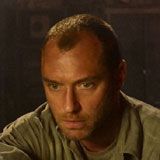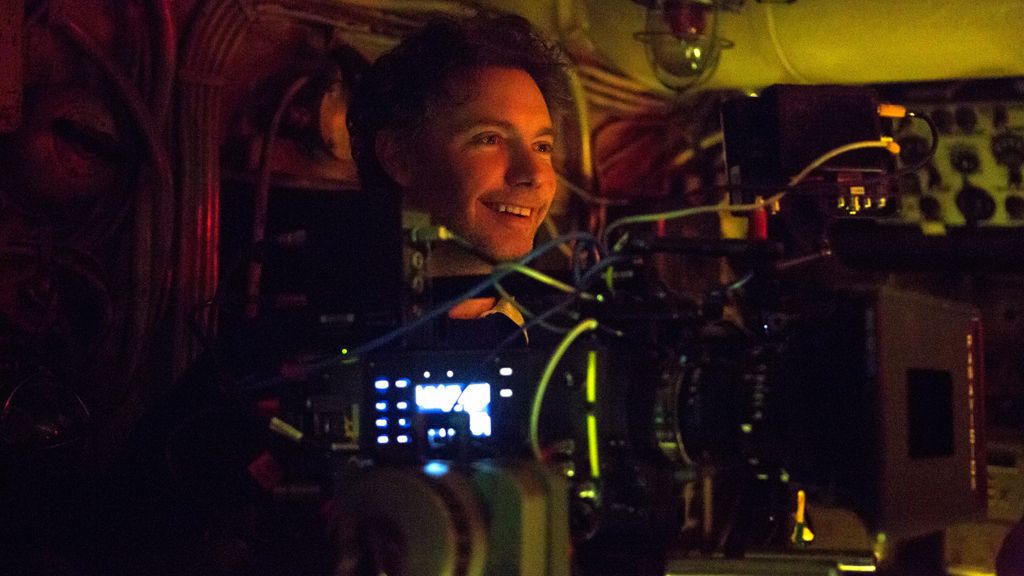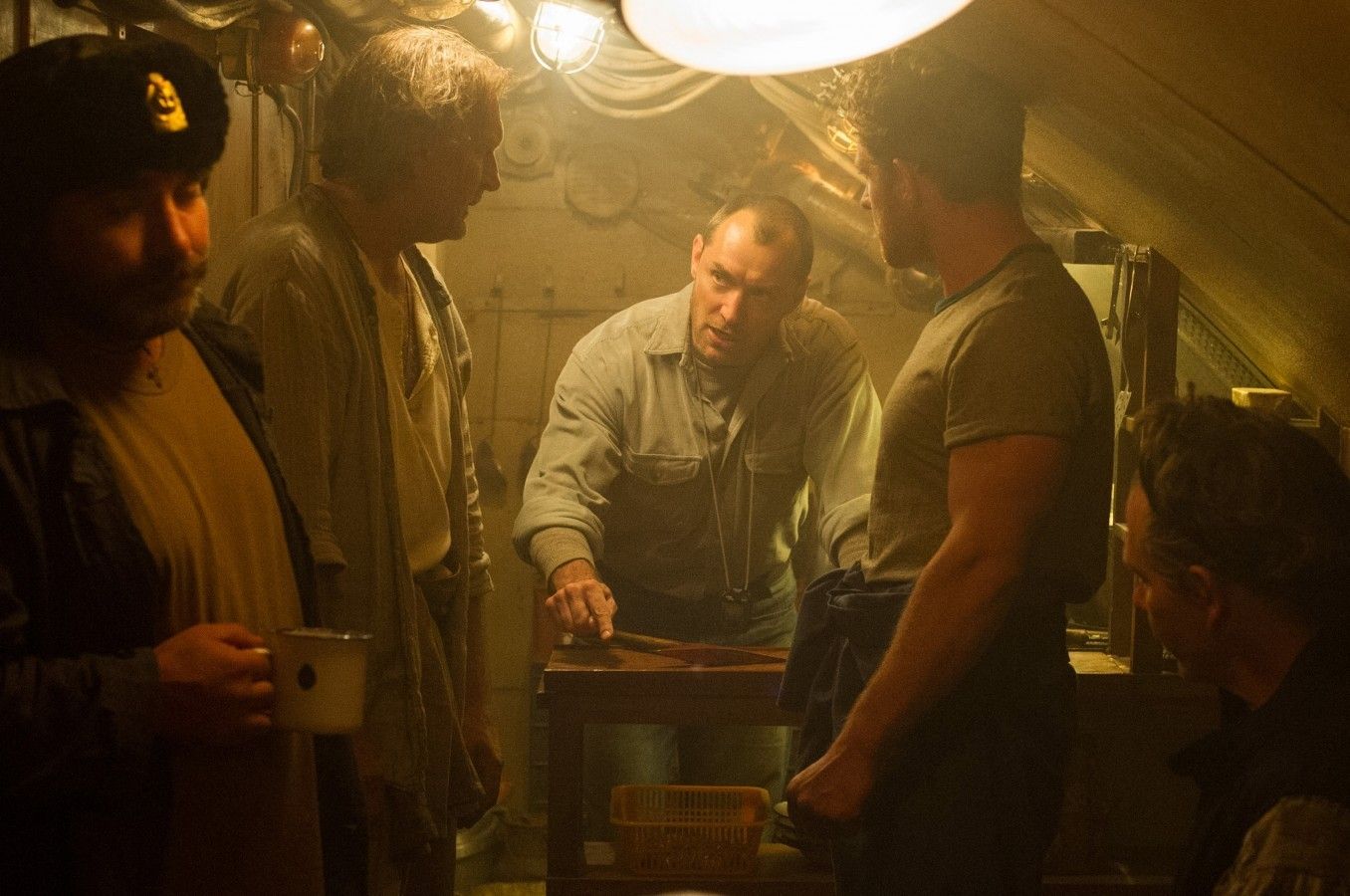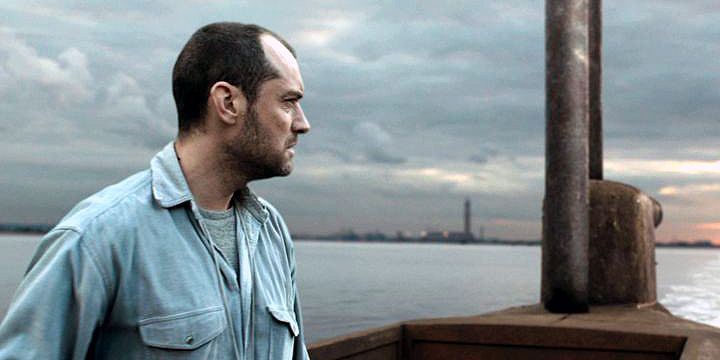"Sub movie, heist movie, Nazi gold," muses director Kevin Macdonald. "What else do you need?"
Those were the kinds of juicy ingredients Macdonald (The Last King of Scotland, The Eagle) was looking for: a claustrophobic, combustible environment and a high-stakes score that would allow characters to clash in an extreme way. He found it in his latest film Black Sea.
Jude Law leads an ensemble cast -- it includes Ben Mendelsohn and Scoot McNairy -- as a former sea salvage captain who leads a hastily assembled crew of Brits and Russians on a clandestine submarine quest in search of a sunken German World War II U-boat believed to be carrying a payload of Nazi bullion.
And, as Macdonald suggests to SPINOFF, that's plenty of underwater intrigue to start with.
SPINOFF: Black Sea is such a potent combination of these rich, evocative genres and their staples. What got you excited about tackling them and weaving them together?
Kevin Macdonald: Just the idea of being in a sub! Just the idea of a sub movie – a modern-day sub movie that isn’t a naval sub movie, that’s about civilians and thinking … I was inspired by the Kursk disaster, which happened 10 years ago -- a Russian sub that went down, and a lot of people died immediately, but some people survived in a compartment and the air slowly ran out before the rescuers could get to them. And I thought, "That’s the worst way to go." And so I took that idea and thought, "Well, why are these people here? We have people trapped at the bottom of the ocean. Why are they there? How did they get there? Maybe they were looking for treasure of some description."
Then I started thinking of Treasure of the Sierra Madre, and the idea of desperate guys who are on last-ditch attempt at trying to make something of their lives. How in the end, gold’s going to screw them up. And I thought, "There’s something interesting in there." And I talked about that to Dennis [Kelly], who’s the writer – he’s a playwright, and I went to him partly because he is a playwright, and I felt in some way this was a bit like a play: a bunch of characters stuck in one location for most of the movie.
What was the challenge of doing it just like you said: having that confined location to work with? And what was surprisingly easy or unexpectedly fun about that challenge?
Well, I think there’s something about the fact that it’s an ensemble film that was really fun. It’s a bunch of characters: Jude Law is the star, but he’s playing a character so different from who he is. He becomes another character. He fits in with these characters. It was fun not having that sense of normal "movie star" role, and having a bunch of really great actors around you who just do interesting things with the lines and with moments. They define the characters very quickly and very simply. That was a lot of fun.
I think that, technically, it is hard working in a submarine. We worked partly in a real submarine for a couple of weeks -- we shot on a real Russian sub -- and the rest of it on a set. After you’ve been filming in the same room for a week, and you’ve covered every angle you can possibly have in that room, then you get kind of frustrated. You think, "Oh, my God, we’ve done this show three times before." But I had to sort of make myself embrace that, because it’s that claustrophobia, that lack of choice into where you put the camera, that’s what it really would be like on a sub. I wanted to evoke that sense of reality. So I had to embrace what that meant.
Likewise, I didn’t want to do the Tony Scott/Crimson Tide thing of having big, big sets – far too big; a real sub and having sides of the set that come off so you can throw a crane around it. Although I love that movie, that’s not what we wanted to do. We wanted to create a real feeling that you’re really there. Because it’s so much about making the audience feel you are underwater, and this is terrifying to imagine what these people are going through.
Were there also unique challenges with all of the testosterone of that all-male cast?
Yeah, I mean, there’s definitely something interesting about having an all-male cast and the dynamic that occurs between them. That was softened a big because half the cast was Russian – and they didn’t speak English, the Russians, really. So there’s a translation – they were kind of like always "the other," and that is partly in the movie. There’s these two sides who are forced to be together in some way, and there’s a friction between them – and friction partly caused with a lack of being able to communicate. So there wasn’t ever a real sense of, these actors are going to start fighting each other to who can be top dog because I think the Russian element kept it between the two sides, even in the actors.
Among the ensemble, I’m sure as an actor Jude was also kind of the captain of the team.
He absolutely was. He absolutely was, and he was great at doing that. I was saying to somebody earlier that at the same time he was doing this movie, he was preparing to be on stage as Henry V, and he did it great. He got nominated for the Olivier Award and also some things in London and on the West End for that. But there was an interesting thing that fed in from Henry V into this movie, because Henry V is about the carousing, drunken, whoring prince who has to become a leader, become a king, and prove to everyone who doesn’t take him seriously that they should take him seriously.
I think that’s partly what Jude was feeling doing this movie. It’s kind of like, "I’ve got to be the leader. I've got to be convincing as a leader of these men. There’s all these very masculine actors, very authoritative actors, and I’ve got to have more authority than anyone. I’ve got to have that without screaming and shouting. I’ve just got to naturally embody that." So I think sometimes there’s a bit of Henry V in there.
When you were on the actual submarine, did you get to test any of its capabilities? Did you go underwater?
No. That submarine would not go underwater. And if it would, I would not go in it! [Laughs] No, they’ve actually taken the propeller off. I think if you were a great mechanic, you could get in there and make them work. There’s no reason why they wouldn’t. We had to rewire quite a lot of it to get some of the lights working and things like that.
But no, the reason we filmed in it was because it was such an extraordinary museum piece. It’s the Soviet '60s design, it’s just fantastic. There’s not that very many like that left. It’s in pretty good condition. So I thought we could never construct something like this. We just don’t have ten million dollars that it would take to make something this real feeling and this big and extraordinary – and beautiful, actually.
Rattle off some of the submarine movies that you love, the heist you love or the Nazi gold movies that you love – the ones that informing your brain.
Well, I think Run Silent, Run Deep – I love Clark Gable. I think it’s a parallel Jude Law/Clark Gable matinee idols doing something very different. It’s also got the obsession that borders into madness, a sort of Captain Ahab quality, which is in a lot of sub movies.
Then you’ve got Das Boot, which is the best of the sub movies – well, best of the naturalistic sub movies - because it’s kind of got this anthropological thing. It’s just interesting just watching them going about their business, those guys in the Second World War. And there’s a tension just in their everyday lives. And I tried to have some of that in our film. Then there’s Crimson Tide – of the modern Hollywood sub movies, that’s the king of them all. We tried to do something very different than that movie in our aesthetic and in our approach.
I wasn’t looking at other movies that were Nazi gold movies – the other big influences were, very obviously, The Treasure of the Sierra Madre for its thematics and for, again, the idea of these desperate men who are on their last throw of the dice. And how the gold, the treasure they find is going to destroy them in a way.
And then there’s The Wages of Fear, which is similar in you have desperate men who would do anything to get money to get away from the situation they’re in and regain their self-respect. And then particularly, I showed the actors the William Friedkin remake Sorcerer, a little-known Friedkin film that was a big flop at the time. It cost an absolute fortune and came out I think in ’76. He just made The Exorcist and The French Connection. He was the biggest director in the world, and they said, “What do you want to do?” And he said, “I want to remake Wages of Fear in South America.” And it didn’t work at all, but it’s a really good movie and I showed that to the actors to say, “This is who you are. You’re like these guys.”
Black Sea opens today.





